They grew up working hard, getting good grades and thinking they’d likely have careers, maybe marry and have kids, all in the city that formed them -- Hong Kong.
But now, Anna Kwok, Frances Hui and Joey Siu are all in exile in the United States, with no idea of when they will be able to return. Each has a bounty of HK$1 million (US$128,500) on their heads from the Hong Kong government, which has vowed to pursue them for the rest of their lives.
Kwok, executive director of international advocacy group the Hong Kong Democracy Council, was 26 when she was placed on the Hong Kong authorities' wanted list in July 2023.
Hong Kong Chief executive John Lee warned her and others on the list that they would be “pursued for life,” urging them “to give themselves up as soon as possible.”
Hui, the first Hong Kong democracy activist to receive asylum in the United States, and Siu, policy adviser to the London-based rights group Hong Kong Watch, were added to the list in December 2023.
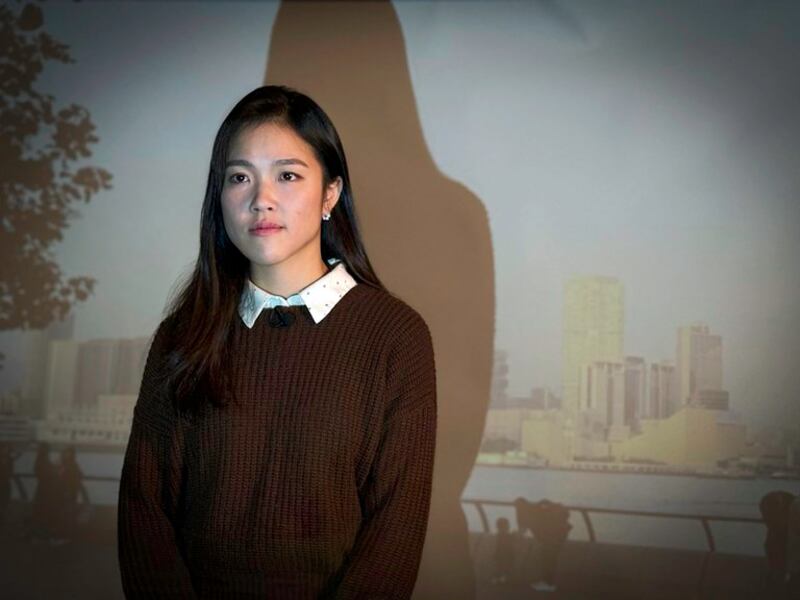
All three women were educated in Hong Kong from elementary school onwards, including classes in Liberal Studies, the former critical-thinking and citizenship program for Hong Kong schoolchildren. The ruling Communist Party has blamed it for waves of youth-led pro-democracy protests since Hong Kong’s 1997 handover from Britain.
Since Beijing imposed two national security laws banning public opposition and dissent in the city, blaming “hostile foreign forces” for the protests, hundreds of thousands have voted with their feet amid plummeting human rights rankings, shrinking press freedom and widespread government propaganda in schools.
Some fled to the United Kingdom on the British National Overseas, or BNO, visa program. Others have made their homes anew in the United States, Canada, Australia and Germany.
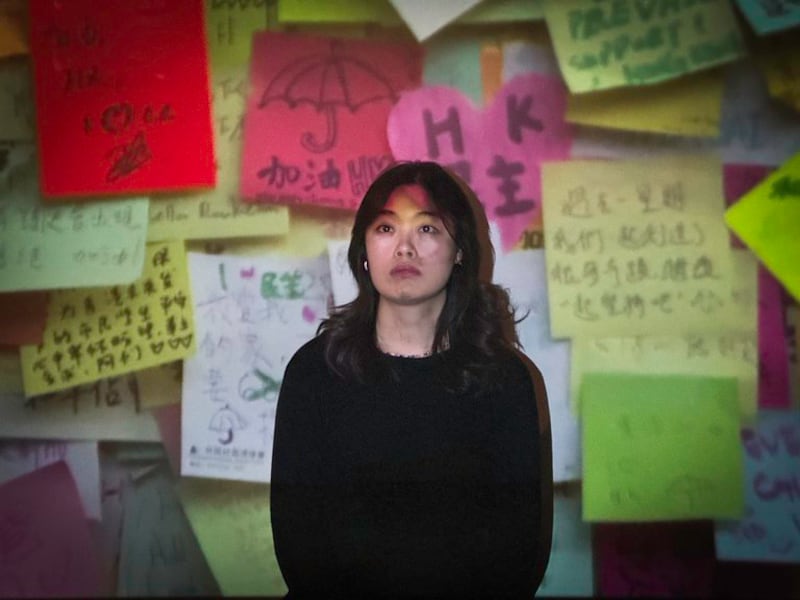
Many are continuing their activism and lobbying activists, yet struggle with exile in some way, worrying about loved ones back home while facing threats to their personal safety from supporters of Beijing overseas.
The changes have happened fast, and turned around the lives of many young Hong Kongers.
Yet Kwok, Hui and Siu can trace their political development as far back as their school days, and continue to carry the message of the protests to policymakers in the United States and beyond.
Even at a young age, Hui was keenly political, joining the activist movement Scholarism, which organized a mass protest led by then-high schooler Joshua Wong against a Beijing-backed program of " patriotic education" planned for the city’s schools.
“The movement against patriotic education happened when I was in Form 4 [age 15], and it was a personal issue for me, because if it happened, I would be brainwashed like a lab rat,” Hui said. “I felt that I could speak out because the leader [Joshua Wong] was also still in school uniform.”
“He ushered in an era where schoolchildren took part in political movements,” she said. “Soon after that, the Umbrella movement happened, and I decided to join Scholarism.”
“Then I went to study journalism in the United States ... which was also part of my work towards freedom and democracy,” Hui said.
‘Strong sense of justice’
As a girl, Siu saw herself as a potential high-school teacher.
“I was lively and outgoing as a kid, with a strong sense of justice,” Siu told RFA Cantonese in a recent interview, adding that she frequently volunteered for positions of responsibility like prefect, monitor and counselor while in school.
But part of her always felt she didn’t belong.
“I was born in the U.S. and didn’t go back to Hong Kong until I was in elementary school,” she said. “My relationship with my parents wasn’t close because I didn’t live with them as a child ... I was looked after by my grandparents.”
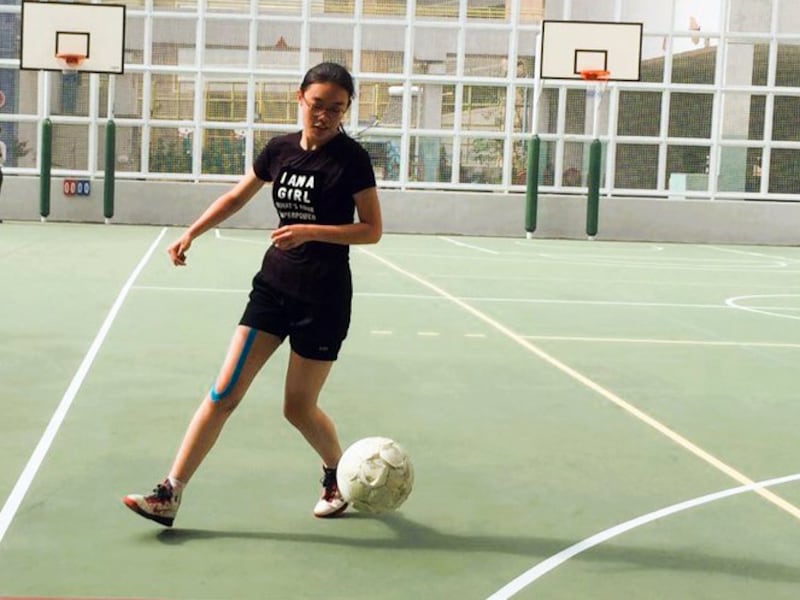
“My upbringing was pretty strict,” she said. “I was only allowed to watch the 6.30 evening news on TVB while we ate dinner, but I wasn’t allowed to watch any TV the rest of the time.”
“I wasn’t allowed to read anything that wasn’t on the school curriculum, including comics and novels; I was only allowed to read newspapers,” she said.
Kwok, by contrast, was always something of a rebel.
“I’ve always been someone who likes to challenge existing frameworks, ever since I was a child,” she said. “In high school, I often talked back to my teachers, and would also speak out enthusiastically and ask questions about current affairs.”

“I also loved to try new things, or rather my family gave me a lot of opportunities to try different things, like rhythmic swimming, Chinese music, and playing the piano,” she said.
Complex world
Hui, meanwhile, described herself as “very noisy” in school.
“I don’t like to be boxed in by frameworks,” she said. " I used to like boy stuff; I was popular and had a lot of different interests."
Yet her upbringing was strongly Catholic, and her family’s world revolved around the church.
“It wasn’t until I joined Scholarism in 2014 that I actually met people outside of the Catholic community,” she said. “That’s when I realized how complex the real world actually is.”
RELATED STORIES
Year in video: Voices of resilience and protest in 2024
Hong Kong offers bounties for 6 more democracy activists
Silence, inaction enable Hong Kong police bounties, says activist
All three women are now firmly regarded as subversive by their government, and by extension, the ruling Chinese Communist Party.
Their generation is unique in that it received a liberal education from a young age, but also lived through the early stages of Beijing’s patriotic education program in schools and universities.
“Kindergartens and primary schools gradually started to offer classes about China, and study tours to Beijing,” Kwok said. “They were constantly indoctrinating us that we were Chinese and should be proud of our identity as Chinese.”
“But at the same time, I was seeing a lot of negative news about China, including the [banned] Sudan Red food dye, and about the tofu buildings in Sichuan [that led to the deaths of thousands of schoolchildren in the 2008 quake],” she said. “It made me realize that ... Hong Kong was different from China.”

“When I was in junior high school, people starting talking about the identity of Hong Kong people, and I realized that Hong Konger was the identity that I could relate to,” she said.
Yet Kwok doesn’t see herself as particularly influenced by Western ideas.
“Western education has had a definite impact on me, but only in the sense that it made us realize that critical thinking is an essential skill for anyone, and that human rights, freedom and democracy are all necessary to work for the sustainable development of society,” she said.
Around the same time, Siu was getting similar information about China from Hong Kong’s still freewheeling press.
“All my knowledge of politics and current affairs came from the few free newspapers I got in the lobby of my apartment building when I was in school,” she said. “I learned that infant formula in China was laced with melamine, and that they cut corners when it came to building.”
“Later, I saw that the Hong Kong government was ignoring ... demands for democracy from its people,” she said. “I’ve known since I was a child that neither the Chinese nor the Hong Kong government is a friend to people of Hong Kong.”
Learning about Tiananmen Massacre
Meanwhile, Hui was glued to a weekend political discussion show that ran live on Radio Television Hong Kong called “City Forum.”
“When I was 10, it was the 20th anniversary of the [1989] Tiananmen massacre, and all the TV stations made anniversary specials, which were a shock to me,” she said. “I never thought there would be such brutal suppression just across the border from Hong Kong, which was still fighting for freedom and democracy, and that some people had lost their lives.”
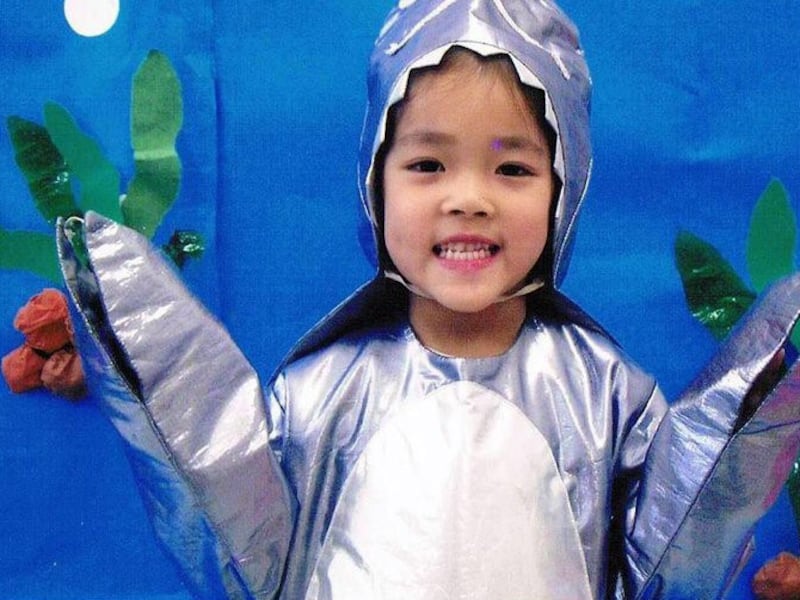
“Those students [in 1989] were just fighting for the right to vote, and for the freedom that should have been their birthright,” she said. “They weren’t brainwashed to do that; it was just something that it was natural for them to pursue.”
Back then, none of them realized how big a role they would come to play in their city’s history.
Kwok dreamed of becoming an artist and filmmaker, while Siu thought she might like to teach Liberal Studies, and Hui was thinking about journalism, or maybe accountancy.
But the 2014 Umbrella Movement -- protests in which demonstrators used umbrellas to protect themselves -- changed them, without their realizing it at the time.
“Back in 2014 I was studying ... in Norway, and the Umbrella Movement started, and I felt very guilty because a friend of mine got caught in a tear gas attack and I wasn’t even there,” Kwok said. “So I organized a seminar in Norway to tell the outside world about what was happening in Hong Kong.”
“The same thing happened again in 2019, when all of [the protests] were happening ... I was a overseas, so that time I went to a seminar,” she said. “Basically, there was no way I was going to carry on as if nothing was happening.”
Transnational repression
Life as an activist in exile isn’t easy, however.
All three women bemoaned dwindling attendance at overseas protests, as Hong Kongers start to feel the pinch of their government’s “long-arm” law enforcement, in the form of threats to loved ones and financial assets back home.
Sometimes, they wonder if it’s worth it, and whether they should take a break from lobbying to live their lives more fully.
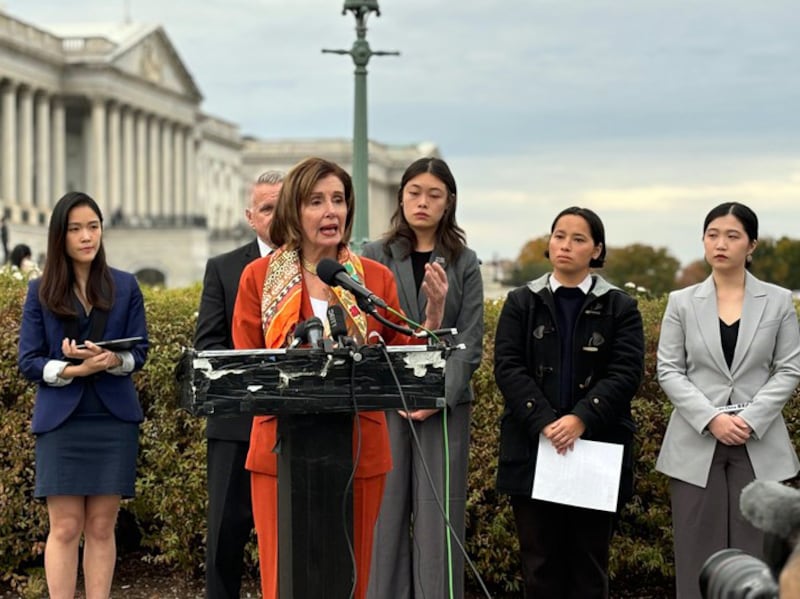
All of them miss Hong Kong terribly, the city’s hustle and bustle, its Cantonese culture, and their friends and family, with whom they have cut off ties for their own protection.
“It’s been four years and two months since I left Hong Kong,” Siu said. “Before I got on the plane ... I was afraid that this would be my final good-bye.”
“When they put out the arrest warrants, I was so sad not to able to celebrate my grandma’s birthday with her, yet I couldn’t call and tell her not to worry about me,” she said.
Yet none of the three women has any regrets about the way things turned out.
“The government is so scared of three young women in their 20s because what we say is right,” Hui said.
Siu added: “Everything we do is done to make Hong Kong a better place.”
Translated and edited by Luisetta Mudie.
